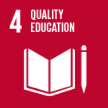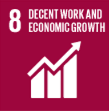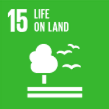SUSTAINABLE SPORE PRODUCTION
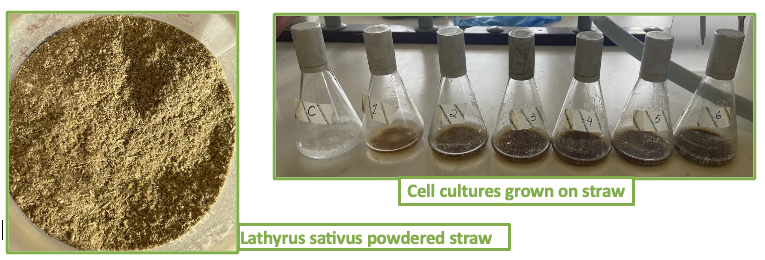
The Microbial Genetics Lab of the BENEFIT-Med Coordinator Team, at UNIPV, successfully produced bacterial spores to be used for biopriming through fermentation of orphan legumes straw. Now the process is fully circular and sustainable: biopriming with bacterial spores favours legumes growth –> the waste leftover after legumes collection can be used for spore production!
BENEFIT-Med at the PRIMA DAY in ROME
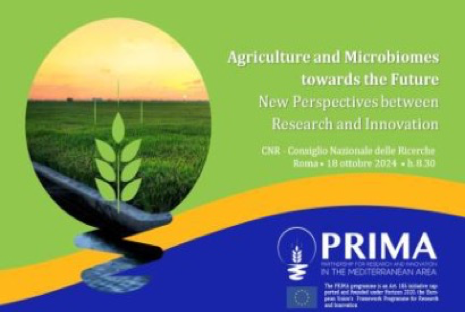
The Workshop Agriculture and Microbiomes towards the Future New Perspectives between Research and Innovation held in Rome on October 18th, 2024 gathered five PRIMA projects (BENEFIT-Med, PROSIT, REVINE, RESCHEDULE, OPTIMUS PRIME) sharing scientific and technical knowledge, as well as experience in public engagement, with the common goal of bringing innovation to the agroecosystems of the […]
DIRASA meets BENEFIT-Med
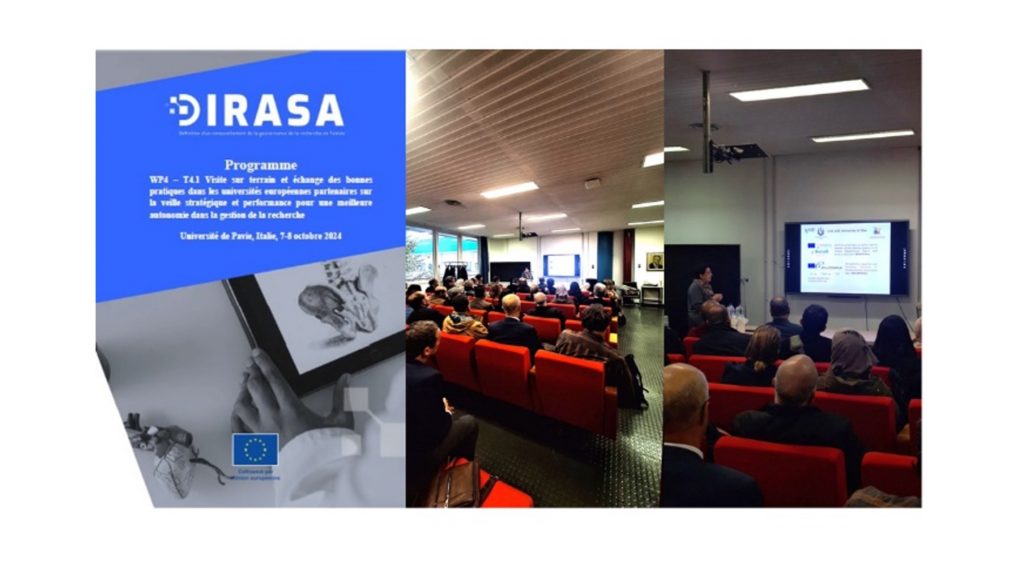
The DIRASA (Définition d’un renouvellement de la gouvernance de la recherche en Tunisie) project that aims to improve the governance of university research in Tunisia by enhancing the capacity of different actors to engage with the priorities of national research while promoting the dialogue and the scientific cooperation within the Tunisian National Research System. A […]
BENEFIT-Med at the Researchers’ Night 2024 in Pavia (Italy)
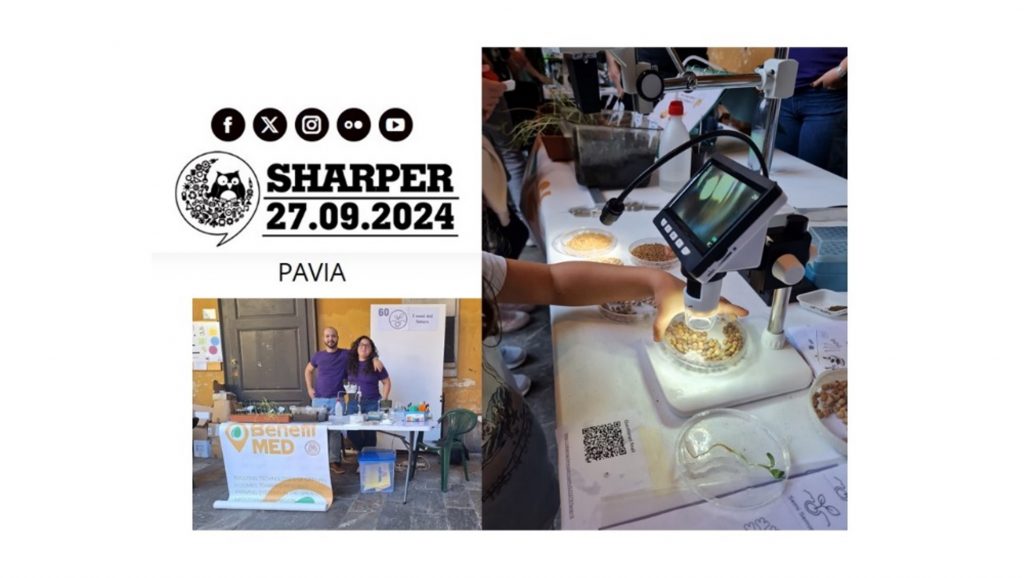
Young researchers of the BENEFIT-Med Team shared their passion for science and seeds, disseminating the core concepts of BENEFIT-Med, the precious value of orphan legumes and the need to fight climate change with innovative and sustainable strategies. Kids were enthusiastic to play with the orphan legumes seeds, listening at their fascinating history.
BENEFIT-Med Workshop II – September 12th, 2024
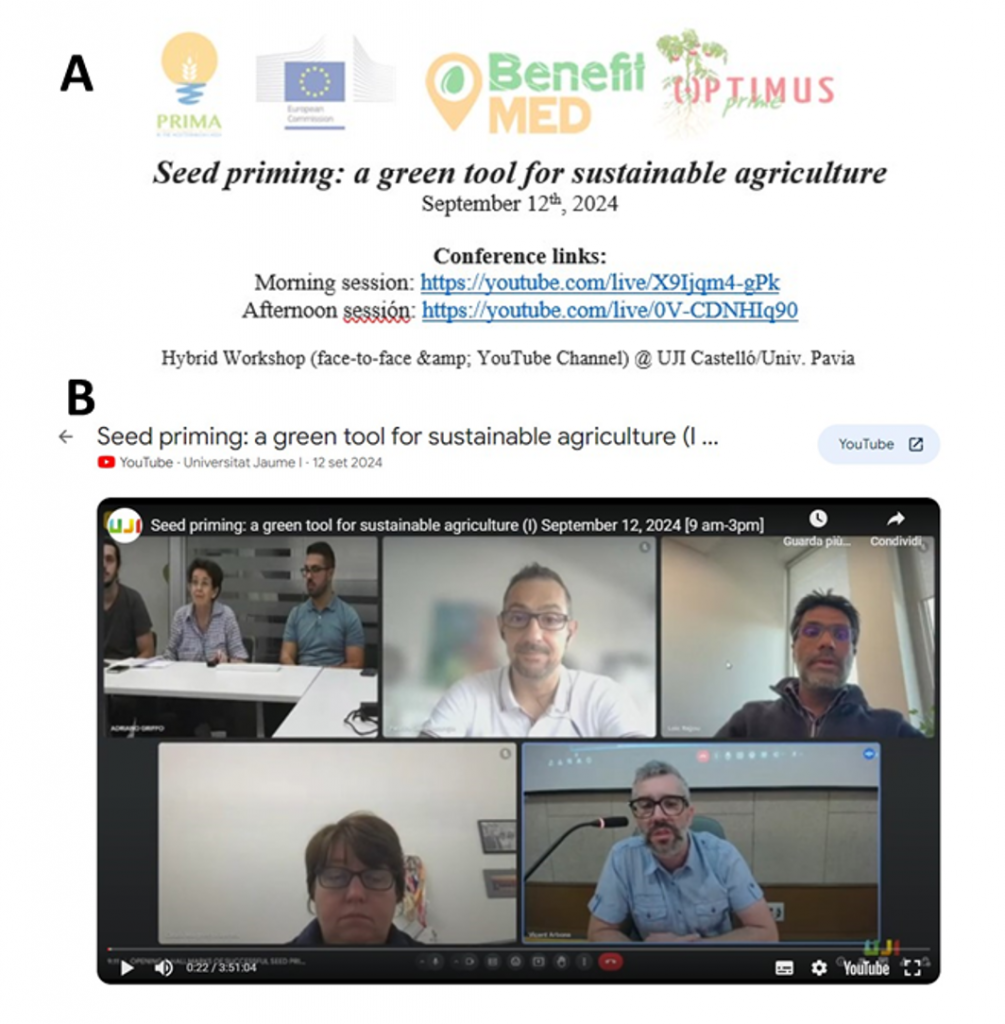
The workshop titled “Seed priming: a green tool for sustainable agriculture” showcased the result of the joint efforts of the two PRIMA projects BENEFIT-Med and OPTIMUS-Prime. The entire workshop was broadcasted live and is permanently available and accessible on the Youtube channel of Universitat Jaume I (Castellon de la Plana, Spain) The Coordinators Vicent Arbona […]
BLC3 Team at work! Time for LCA analysis …
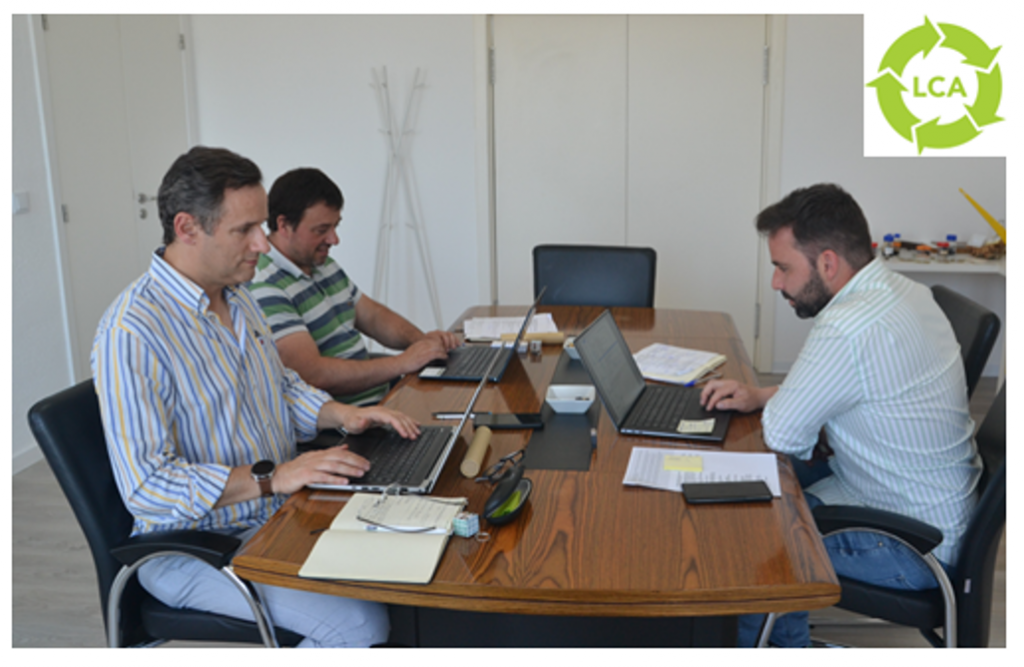
BLC3 Team at work! Time for LCA analysis … … to assess the environmental impact and sustainability of the new BENEFIT-Med farming system when compared conventional solutions/practices locally available. Impacts will be assessed at the crop production system level, taking into account all agricultural activities.
Intense training led by the US Team
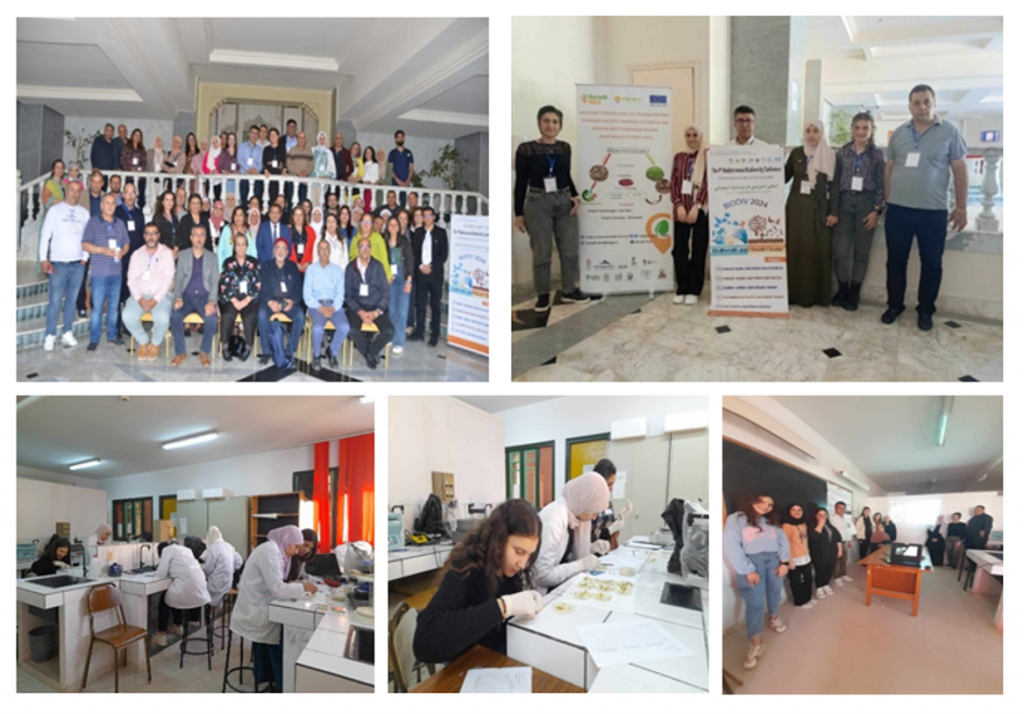
University of Sfax Team participated in the Conference BIODIV 2024 (The Fourth Mediterranean Biodiversity Conference) organised by ASCOB Syrtis in Sousse (Tunisia). During this event, the Team led an educational workshop on the effect of different priming methods evaluated on the orphan legumes trigonella (Trigonella foenum-graecum L.), grass pea (Lathyrus sativus L.), and forage pea […]
Enthusiastic stakeholders welcome BENEFIT-Med
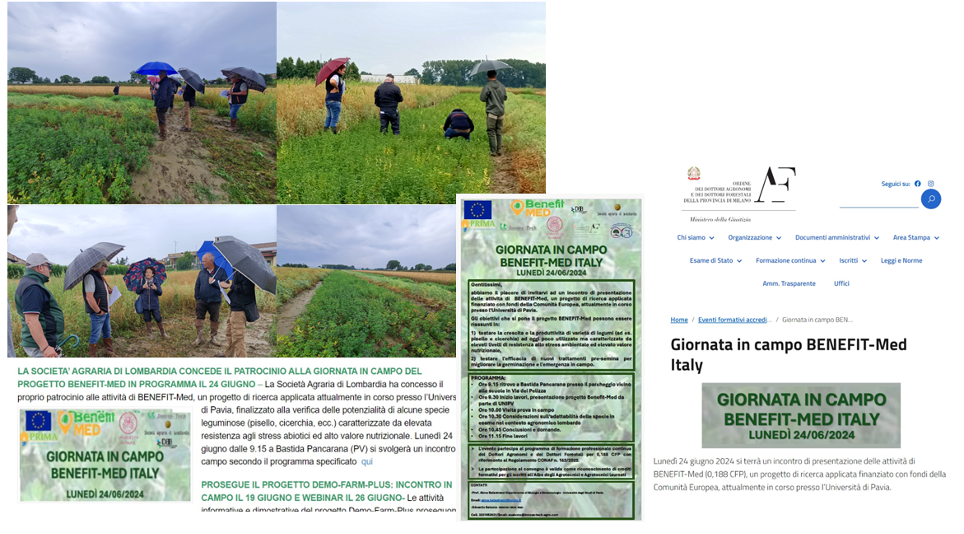
Open Day – Pavia (Italy) – Held on 24th June 2024 at the pilot site in Pavia. Sponsored by the Lombardy Society of Agronomy, the Association of Agronomists & Forest Operators, and the Association of Agro-Technologists. These key stakeholders, necessary to reach in a more effective way the local farmers, were positively impressed by the […]
Field trials with orphan legumes have been successfully closed !!!
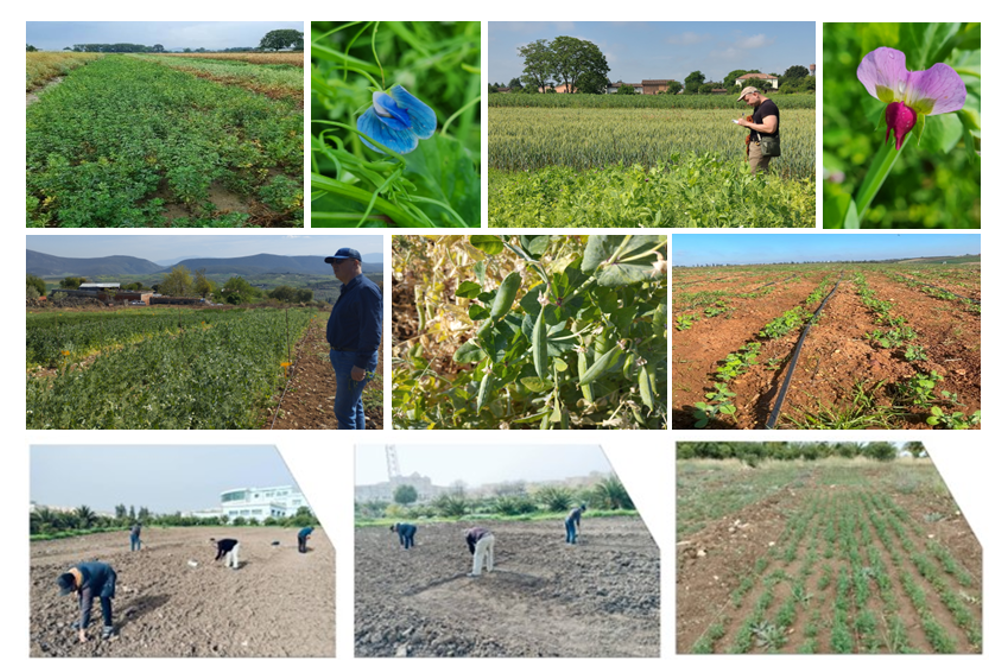
Italy, Tunisia, Algeria, Morocco, Greece and France: an incredible synergic effort to test the BENEFIT-Med target species under different climatic conditions around the Mediterranean Area. UNIPV TEAM with the support of INNOVA-TECH agronomists: field trials performed in North-Western Italy. Orphan legumes did very well and showed significant benefits in response to seed priming treatments. UFAS1: […]
SETTING ORPHAN LEGUMES FOR “ON-FARM” SEED PRIMING
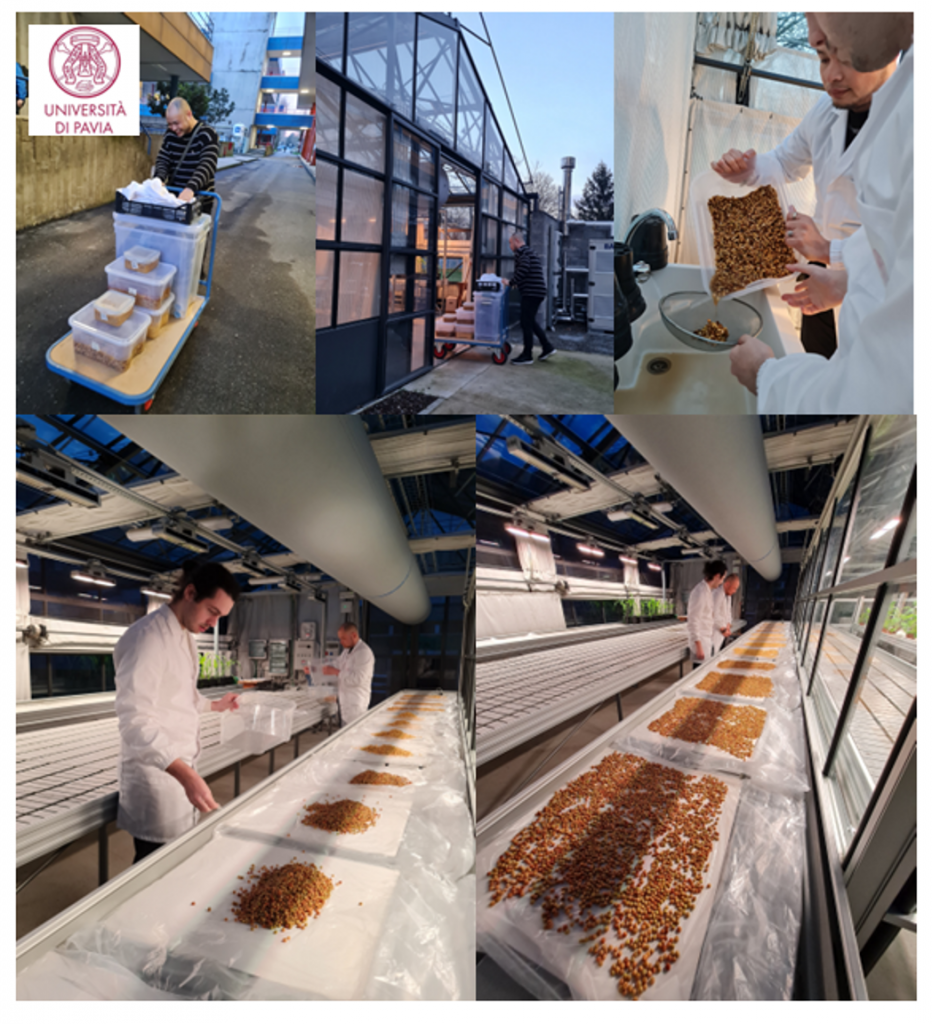
The young researchers of the UNIPV BENEFIT-Med Team design protocols for sustainable “on-farm” seed priming. These protocols can be easily used by farmers. Open Days at pilot sites will be essential to promote orphan legumes adoption by farmers. Training will help this transition.




